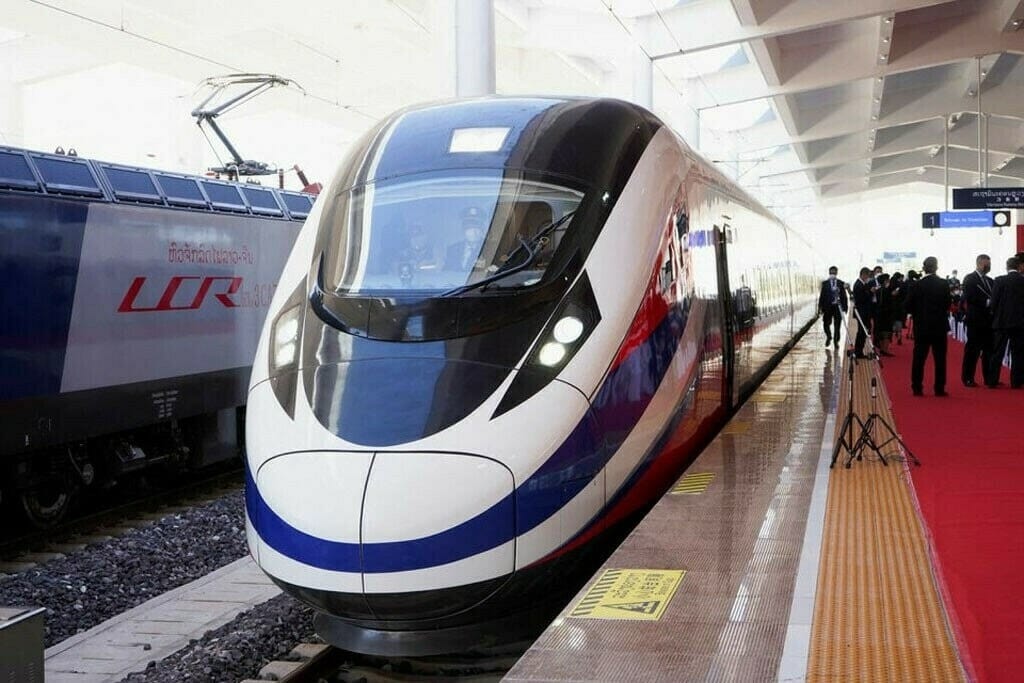China Offered Bullet Train Pakistan Project
Introduction
The possibility of a bullet train in Pakistan has sparked interest nationwide. Recently, China’s state-owned Guangzhou Metro Group (GMG) offered its expertise to help Pakistan develop a high-speed rail system. This proposal, if accepted, could transform Pakistan’s travel infrastructure. It would reduce long travel hours, improve economic activity, and bring Pakistan closer to global transport standards.
The project is still at the discussion stage. However, the offer itself reflects Pakistan’s growing importance in regional connectivity. Moreover, it shows China’s willingness to expand cooperation beyond roads and energy projects under CPEC (China-Pakistan Economic Corridor).
GMG’s Expertise in Modern Rail Systems
China is home to the world’s largest high-speed rail network. GMG has decades of experience in metro development, bullet train operations, and railway management. In 2024 alone, the company handled billions of passenger trips safely and efficiently.
This track record highlights GMG’s strength in planning, construction, and technical management. The company has already shared its expertise with countries such as Singapore, Vietnam, and Pakistan, as well as regions like Hong Kong.
As a result, GMG is not only trusted in China but also respected internationally. Their experience could prove valuable in helping Pakistan modernize its outdated railway system.
Why Bullet Train Pakistan Matters
Pakistan’s rail system has struggled for decades due to poor maintenance and lack of modernization. Despite this, trains remain a lifeline for millions of passengers across the country.
The introduction of a bullet train in Pakistan would mark a turning point. Some of its key benefits include:
- Faster travel times: Journeys that take 10–12 hours could be cut to just 3–4 hours.
- Boost to economy: Faster movement of goods and people strengthens trade and business.
- Reduced road pressure: With more people traveling by train, highways would face less congestion.
- Cleaner transport option: Electric bullet trains are environmentally friendly compared to buses and cars.
Soon after its launch, the project could connect major cities like Karachi, Lahore, and Islamabad, reshaping mobility across Pakistan.
Challenges for Pakistan’s Bullet Train Dream
Despite the excitement, several challenges remain before Pakistan can realize this dream.
- High costs – Building a bullet train requires billions of dollars in investment.
- Land acquisition – Securing routes through cities and rural areas often leads to delays.
- Technology transfer – Pakistan will need advanced technology and skilled manpower.
- Political will – Large projects often face delays due to policy changes.
However, China’s offer provides an opportunity to overcome many of these hurdles. With strong cooperation, financing support, and technical expertise, Pakistan could gradually take steps toward developing a sustainable high-speed rail system.
China-Pakistan Cooperation in Infrastructure
The bullet train proposal adds to the long list of China-Pakistan infrastructure projects. Under CPEC, China has already invested heavily in highways, motorways, energy plants, and ports.
This railway offer shows that cooperation is expanding into new sectors. Moreover, it highlights China’s role in supporting Pakistan’s modernization efforts. The success of projects like the Orange Line Metro Train in Lahore proves that such partnerships can work well.
If a bullet train project starts under the same cooperation model, it could be a flagship development in the next phase of CPEC.
Read Also Here:
Defence Day Pakistan 2025 Honouring Sacrifice and Celebrating Resolve
Regional and Global Perspective
High-speed rail is no longer limited to developed countries. Nations like India, Indonesia, and Turkey are already investing in bullet trains. Pakistan cannot afford to be left behind if it wants to stay competitive in South Asia.
Bullet Train Pakistan would also increase regional connectivity. It could eventually link with China’s railway system, opening faster trade routes across Asia. Furthermore, such a project would strengthen Pakistan’s position as a transit hub under the Belt and Road Initiative (BRI).
Public Expectations and Government Role
Across Pakistan, citizens often complain about the slow and outdated railway system. Many see a bullet train in Pakistan as a long-awaited solution to transportation woes.
However, the government must carefully assess the financial model. Should it be built through public funding, foreign loans, or public-private partnerships? Transparency, planning, and sustainability will decide the project’s success.
Moreover, the government must ensure that this project benefits not only major cities but also smaller towns along the route. Equitable development will make the system useful for all citizens, not just the elite.
Read Also Here:
Pakistan Celebrated Eid Milad un Nabi with Religious Zeal
Future Outlook: Can Pakistan Afford a Bullet Train?
Critics argue that Pakistan should first improve its existing railway before aiming for a bullet train. This view is valid, considering the railway’s current problems. Yet, both goals can move forward together.
Upgrading existing tracks for cargo and regional travel while developing bullet train routes for high-speed passenger travel is possible. China’s offer may allow Pakistan to adopt a phased approach.
In addition, sustainable financing models—such as foreign investment and revenue-sharing agreements—could reduce the burden on the national budget. If handled wisely, this project could become a reality within the next decade.
Conclusion
The offer from China’s Guangzhou Metro Group marks an important moment in Pakistan’s transport history. While challenges exist, the potential of a bullet train in Pakistan cannot be ignored.
With faster travel, economic benefits, and stronger regional connectivity, this project could transform how millions of people move every day. However, its success will depend on planning, transparency, and cooperation between Pakistan and China.
As Pakistan looks to the future, this proposal could become the starting point of a transport revolution. For more on Pakistan-China projects, visit the official CPEC website.
Read More Here:
Defence Day Pakistan 2025 Honouring Sacrifice and Celebrating Resolve















